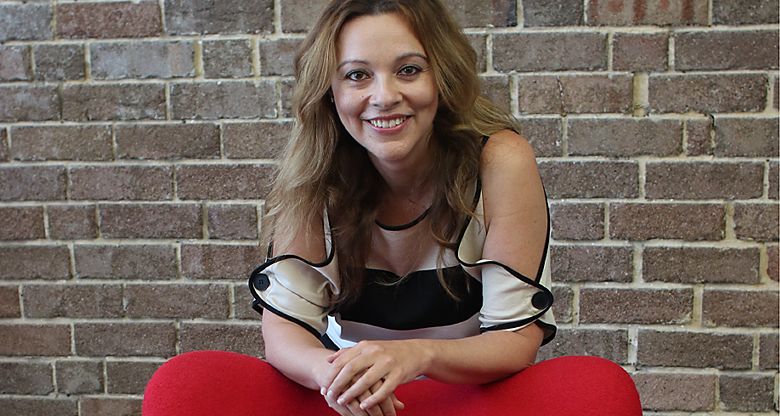The need for gender equality and inclusion in major Australian sporting codes has significant parallels to the business landscape. Whether in sport or business, having the support of top leaders, role models and partners through to encouraging participation at a grassroots level is crucial to success.
Several surveys over recent years have found that Australia’s favourite sporting teams are dominated by women. In 2020, the women’s cricket team topped the list followed by the CommBank Matildas football team, the women’s rugby sevens team, and netball’s Diamonds.1
Despite this, there are still areas that are lacking, including pay equity. Several notable names in Australian sport have spoken about ways to incorporate equality, including engaging in conversations as to what equality looks like and how to get there.2
In doing so, these women – both as players and as executives in the business of sport – believe they can expand the popularity of their product. One of those women, Stephanie Beltrame, Cricket Australia’s Executive General Manager – Broadcast & Commercial said, “To truly meet that vision [of equality] we have to, in everything that we do, make sure that we are genuinely a sport for all and that we eliminate any form of discrimination.”
Taking action to effect change
Sarah Walsh has seen this from the front line. The former CommBank Matildas’ star and captain of the Western Sydney Wanderers football team has been involved in professional sport for more than 20 years. She’s now the Head of Women’s Football with Football Australia. She says the change in sport reflects conversations that are happening across corporations, governments, and the private sector.
That change, however, isn’t always easy and included a strike by the CommBank Matildas to address inadequate pay.3 “Until that happened, we weren’t going to see change,” says Walsh.
It wasn’t about just seeing a pay rise but about reviewing how equity worked in the sport including reviewing how much money was available and how it was split. Think about it as defining what equity looks like and then delivering on it.
The moment had global ramifications, notes Emergent CEO and Port Adelaide Football Club director Holly Ransom. “It created all manner of ripple effects and it’s been a source of inspiration for other international markets for how you could approach making progress on gender equality.”
A great deal of the challenge wasn’t just the equity issue but the systemic issues about how people viewed women’s sports.
“A lot of what we do is long-term culture change throughout broader society,” says Walsh. “That’s why change is difficult.”
Inclusion is a key part in growing sports, says Beltrame, including minority groups, women, men, and people of all abilities. “To truly meet that vision, in everything that we do – in our values – we have to make sure that we are genuinely a sport for all and that we eliminate any form of discrimination.”
Making inclusive changes drives results
The drive to change must come from within.
As they pushed for more recognition for women’s cricket, Beltrame says there was some pushback from people who wanted to start small rather than go big with a vision and belief. Regardless, Cricket Australia took deliberate steps to not only expand the profile of women’s sport but also make it a welcoming environment for all involved in the game and addressing issues such as higher pay and parental leave policies that are tailored for female players.
Having more women in leadership roles is critical, says Beltrame. “Even in media organisations, the more females in key executive positions, then we will make better decisions as a country.”
Walsh agrees, adding, “I think it’s an uphill battle if there are only a few women in the room. [When] you get critical mass, you can create a psychologically safe environment for people to speak up.”
“Our journey has been, certainly in the last decade, very deliberate and strong,” says Beltrame. “We have so, so many more opportunities ahead, we’re on an ongoing journey.”
She says that men will be a crucial part of the change. “We can have confidence and trust in our male colleagues that they understand the true, holistic picture about growth and where growth and success can come from. I think men have an equal opportunity to work with us, to address inequality across sport.”
Nothing is going to grow without support and incentive. Diversity doesn’t just happen. In the case of women’s sport, that included prize money from sponsors like Commonwealth Bank – something that in the very early days would have been unheard of, says Beltrame.
Some of the changes that have been instituted have drawn in players that may have otherwise opted not to compete because of family commitments. Walsh specifically pointed to CommBank Matildas’ midfielder Katrina Gorry who breastfeeds before and after matches. “These women are just unbelievable,” she says. “They’re reshaping what women leadership in football looks like for us.”
Sign up to the Women in Focus newsletter for updates on our community and events, and more content like this.
Our experts
Sarah Walsh is a former CommBank Matilda’s star. She’s now the Head of Women’s Football, Women’s World Cup Legacy and Inclusion at Football Australia. Sarah has been involved in professional sport for more than 20 years. Last November she was appointed co-chair of the inaugural National Indigenous Advisory Group of Football Australia.
Stephanie Beltrame has been Cricket Australia’s Executive General Manager – Broadcast & Commercial for the past four years. She joined Cricket Australia in 2000 in administration before taking a role in public affairs. She was then seconded to the International Cricket Council, before returning to CA as General Manager of Media Rights where she managed partnerships and grew revenue. Stephanie holds a Bachelor of Applied Science (Sports Coaching & Administration) and an MBA. She recently completed six years as a non-executive director of Vicsport.




